- Home
- Michael Connelly
The Black Ice (1993) Page 8
The Black Ice (1993) Read online
Page 8
“You read this, right? Tell me about the Dance bust.”
“What’s to tell?” Rickard said. “We kick ass, the DA kicks the case. What’s new? It’s a different drug, man, but it’s the same old thing.”
“What made you set up on Dance? How’d you know he was making deliveries there?”
“Heard it around.”
“Look, it’s important. It involves Moore.”
“How?”
“I can’t tell you now. You have to trust me until I put a few things together. Just tell me who got the tip. That’s what it was, right?”
Rickard seemed to weigh the choices he had.
“Yeah, it was a tip. It was my snitch.”
“Who was it?”
“Look, man, I can’t—”
“Jimmy Kapps. It was Jimmy Kapps, wasn’t it?”
Rickard hesitated again and that confirmed it for Bosch. It angered him that he was finding this out almost by accident and only after a cop’s death. But the picture was clearing. Kapps snitches off Dance as a means of knocking out some of the competition. Then he flies back to Hawaii, picks up a bellyful of balloons and comes back. But Dance isn’t in lockup anymore and Jimmy Kapps gets taken down before he can sell even one of his balloons.
“Why the fuck didn’t you come talk to me when you heard Kapps got put down? I’ve been trying to get a line on this and all the—”
“What’re you talking about, Bosch? Moore met you that night on the Kapps thing. He . . .”
It became apparent to everybody at the table that Moore had not told Bosch everything he knew that night at the Catalina. The silence fell heavy on them. If they hadn’t known it before, they knew it now: Moore had been up to something. Bosch finally spoke.
“Did Moore know your snitch was Kapps?”
Rickard hesitated once more, but then nodded.
Bosch stood up and slid the file across the table to a spot in front of Rickard.
“I don’t want this. You call Frank Sheehan at RHD and tell him you just found it. It’s up to you but I wouldn’t say that you let me look at it first. And I won’t, either.”
Harry made a move to step away from the table but then stopped.
“One other thing. This guy Dance, any of you seen him around?”
“Not since the bust,” Fedaredo said.
The other three shook their heads.
“If you can dig him up, let me know. You got my number.”
Outside the diner’s kitchen door Bosch looked again at the spot in the alley where Moore had found Juan Doe #67. Supposedly. He didn’t know what to believe about Moore anymore. But he couldn’t help but wonder what the connection was between the Juan Doe and Dance and Kapps, if there was a connection at all. He knew the key was to find out who the man with the worker’s hands and muscles had been. Then he would find the killer.
8
At Parker Center, Harry walked past the memorial sculpture in front and into the lobby where he had to badge the officer at the front counter to get in. The department was too big and impersonal. The cops at the counter would recognize no one below the rank of commander.
The lobby was crowded with people coming and going. Some were in uniform, some in suits, some with VISITOR stickers on their shirts and the wide-eyed look of citizens venturing into the maze for the first time. Harry had come to regard Parker Center as a bureaucratic labyrinth that hindered rather than eased the job of the cop on the street. It was eight floors with fiefdoms on every hallway on every floor. Each was jealously guarded by commanders and deputy chiefs and assistant chiefs. And each group had its suspicions about the others. Each was a society within the great society.
Bosch had been a master of the maze during his eight years in Robbery-Homicide. And then he crashed and burned under the weight of an Internal Affairs investigation into his shooting of an unarmed suspect in a series of killings. Bosch had fired as the man reached under a pillow in his killing pad for what Harry thought was a gun. But there was no gun. Beneath the pillow was a toupee. It was almost laughable, except for the man who took the bullet. Other RHD investigators tied him to eleven killings. His body was shipped in a cardboard box to a crematorium. Bosch was shipped out to Hollywood Division.
The elevator was crowded and smelled like stale breath. He got out on the fourth floor and walked into the Scientific Investigations Division offices. The secretary had already left. Harry leaned over the countertop and reached the button that buzzed open the half door. He walked through the ballistics lab and into the squad room. Donovan was still there, sitting at his desk.
“How’d you get in here?”
“Let myself in.”
“Harry, don’t do that. You can’t go around breaching security like that.”
Bosch nodded his contrition.
“What do you want?” Donovan asked. “I don’t have any of your cases.”
“Sure you do.”
“What one?”
“Cal Moore.”
“Bullshit.”
“Look, I’ve got a part of it, okay? I just have a few questions. You can answer them if you want. If you don’t, that’s fine, too.”
“What’ve you got?”
“I’m running down some things that came up on a couple cases I’m working and they run right across Cal Moore’s trail. And so I just . . . I just want to be sure about Moore. You know what I mean?”
“No, I don’t know what you mean.”
Bosch pulled a chair away from another desk and sat down. They were alone in the squad room but Bosch spoke low and slow, hoping to draw the SID tech in.
“Just for my own knowledge I need to be sure. What I am wondering is, can you tell me if all the stuff checked out.”
“Checked out to what?”
“Come on, man. Was it him and was there anybody else in that room?”
There was a long silence and then Donovan cleared his throat. He finally said, “What do you mean, you’re working cases that cross his trail?”
Fair enough question, Bosch thought. There was a small window of opportunity there.
“I got a dead drug dealer. I had asked Moore to do some checking on the case. Then, I got a dead body, a Juan Doe, in an alley off Sunset. Moore’s the one who found the body. The next day he checks into that dump and does the number with the shotgun. Or so it looks. I just want some reassurances it’s the way it looks. I heard they got an ID over at the morgue.”
“So what makes you think these two cases are connected with Moore’s thing?”
“I don’t think anything right now. I’m just trying to eliminate possibilities. Maybe it’s all the coincidences. I don’t know.”
“Well,” Donovan said. “I don’t know what they got over at the ME’s, but I got lifts in the room that belonged to him. Moore was in that room. I just got finished with it. Took me all day.”
“How come?”
“The DOJ computer was down all morning. Couldn’t get prints. I went up to personnel to get Moore’s prints from his package and they told me Irving had already raided it. He took the prints out and took ’em over to the coroner. You know, you’re not supposed to do that, but who’s gonna tell him, get on his shit list. So I had to wait for the Justice computer to come back on line. Got his prints off of that after lunch and just finished with it a little while ago. That was Moore in the room.”
“Where were the prints?”
“Hang on.”
Donovan rolled back his chair to a set of file cabinets and unlocked a drawer with a key from his pocket. While he was leafing through the files, Bosch lit a cigarette. Donovan finally pulled out a file and then rolled his chair back to his desk.
“Put that shit out, Harry. I hate that shit.”
Bosch dropped the cigarette to the linoleum, stepped on it and then kicked the butt under Donovan’s desk. Donovan began reviewing some pages he had pulled from a file. Bosch could see that each one showed a top-view drawing of the motel room where Moore’s body was found.
>
“Okay, then,” Donovan said. “The prints in the room came back to Moore. All of them. I did the comp—”
“You said that.”
“I’m getting to it, I’m getting to it. Let’s see, we have a thumb—fourteen points—on the stock of the weapon. That, I guess, was the bell ringer, the fourteen.”
Harry knew that only five matching points in a fingerprint comparison were needed for an identification to be accepted in court. A fourteen-point match of a print on a gun was almost as good as having a photo of the person holding the gun.
“Then, we . . . let’s see . . . we had four three-pointers on the barrels of the weapon. I think these kind of got smudged when it kicked out of his hands. So we got nothing real clear there.”
“What about the triggers?”
“Nope. Nothing there. He pulled the triggers with his toe and he was still wearing a sock, remember?”
“What about the rest of the place? I saw you dusting the air-conditioner.”
“Yeah, but I didn’t get anything there on the dial. We thought he turned the air up, you know, to control decomp. But the dial was clean. It’s plastic with a rough surface, so I don’t think it would have held anything for us.”
“What else?”
Donovan looked back down at his charts.
“I got a lift off his badge—index and thumb, five and seven points respectively. The badge was on the bureau with the wallet. But nothing on the wallet. Only smears. On the gun on the bureau I only got a bunch of smears but a clear thumb on the cartridge.
“Then, let’s see, I got the whole hand just about, a palm, thumb and three fingers on the left cabinet door under the bathroom sink. I figure he must’ve put his hand on it to steady himself when he was getting on the floor there. What a way to go, man.”
“Yeah. That’s it?”
“Yeah. Er, no. On the newspaper—there was a newspaper on the chair, I got a big match there. Thumb again and three fingers.”
“And the shells?”
“Only smudges. Couldn’t get anything on the shells.”
“What about the note?”
“Nothing on it.”
“Somebody check the handwriting?”
“Well, actually, it was printing. But Sheehan had it checked by somebody in suspicious documents. He said it matched. Few months back Moore moved out on his wife and took a place in Los Feliz called The Fountains. He filled out a change-of-address form. It was there in the personnel file Irving grabbed. Anyway, the change-of-address card was printed, too. There were a lot of commonalities with the note. You know, ‘Found’ and ‘Fountains.’”
“What about the shotgun? Anybody trace the serial?”
“The number had been filed and acid-burned. No trace. You know, Harry, I shouldn’t be saying so much. I think we should just . . .”
He didn’t finish the sentence. He turned his chair back to the file cabinet and began to put his charts away.
“I’m almost done, man. What about a projectile pattern? Did you do one?”
Donovan closed and locked the file drawer and turned back around.
“Started to. Haven’t finished. But you’re talking side-by-side barrels, double-ought shells. That’s an immediate spread pattern. I’d say he could have done it from six inches away and gotten that kind of damage. No mystery there.”
Bosch nodded and looked at his watch, then stood up.
“One last thing.”
“Might as well. I’ve already told you enough to put my ass in a permanent sling. You going to be careful with what I’ve told you?”
“Course I am. Last thing. Outstanding prints. How many lifts you get that you haven’t matched to Moore?”
“Not a one. I was wondering if anybody would care about that.”
Bosch sat back down. This made no sense. Bosch knew that a motel room was like a working girl. Every customer leaves a little something, his mark, behind. It didn’t matter if the rooms were made up and reasonably cleaned between renters. There was always something, a telltale sign. Harry could not accept that every surface Donovan had checked had been clean except for those where Moore’s prints were found.
“What do you mean nobody cared?”
“I mean nobody said shit. I told Sheehan and that IAD stiff that’s been following him around. They acted like it didn’t mean a thing to them. You know? It was like ‘big deal, so there were no other prints.’ I guess they never did a motel-room stiff before. Shit, I thought I’d be collecting prints in there last night ’til midnight. But all I got were the ones I just told you about. That was the goddamned cleanest motel room I’ve ever printed. I mean, I even put on the laser. Didn’t see a thing but wipe marks where the room had been cleaned up. And if you ask me, Harry, that wasn’t the kinda place the management cared too much about cleanliness.”
“You told Sheehan this, right?”
“Yeah, I told him when I got done. I was thinking, you know, it being Christmas night that they were going to say I was full of shit and just trying to get home to the family. But I told ’em and they just said, fine, that’ll be all, good night, Merry Christmas. I left. Fuck it.”
Bosch thought about Sheehan and Chastain and Irving. Sheehan was a competent investigator. But with those two hovering over him, he could have made a mistake. They had gone into the motel room one hundred percent sure it was a suicide. Bosch would have done the same. They even found a note. After that they would have probably had to find a knife in Moore’s back to change their minds. The lack of other prints in the room, no serial number on the shotgun. These were things that should’ve been enough to cut the percentage of their assuredness back to fifty-fifty. But they hadn’t made a dent in their assumption. Harry began to wonder about the autopsy results, if they would back the suicide conclusion.
He stood up once more, thanked Donovan for the information and left.
He took the stairs down to the third floor and walked into the RHD suite. Most of the desks lined in three rows were empty, as it was after five o’clock. Sheehan’s was among those that were deserted in the Homicide Special bullpen. A few of the detectives still there glanced up at him but then looked away. Bosch was of no interest to them. He was a symbol of what could happen, of how easily one could fall.
“Sheehan still around?” he asked the duty detective who sat at the front desk and handled the phone lines, incoming reports and all the other shitwork.
“Gone for the day,” she said without looking up from a staff vacation schedule she was filling out. “Called from the ME’s office a few minutes ago and said he was code seven until the A.M.”
“There a desk I can use for a few minutes? I have to make some phone calls.”
He hated to ask for such permission, having worked in this room for eight years.
“Just pick one,” she said. She still didn’t look up.
Bosch sat down at a desk that was reasonably clear of clutter. He called the Hollywood homicide table, hoping there would still be someone there. Karen Moshito answered and Bosch asked if he had any messages.
“Just one. Somebody named Sylvia. No last name given.”
He took the number down, feeling his pulse quicken.
“Did you hear about Moore?” Moshito asked.
“You mean the ID? Yeah, I heard.”
“No. The cut is screwed up. Radio news says the autopsy is inconclusive. I never heard of a shotgun in the face being inconclusive.”
“When did this come out?”
“I just heard it on KFWB at five.”
Bosch hung up and tried Porter’s number once more. Again there was no answer and no tape recording picked up. Harry wondered if the broken-down cop was there and just not answering. He imagined Porter sitting with a bottle in the corner of a dark room, afraid to answer the door or the phone.
He looked at the number he had written down for Sylvia Moore. He wondered if she had heard about the autopsy. That was probably it. She picked up after three rings.
�
�Mrs. Moore?”
“It’s Sylvia.”
“This is Harry Bosch.”
“I know.”
She didn’t say anything further.
“How are you holding up?”
“I think I’m okay. I . . . I called because I just want to thank you. For the way you were last night. With me.”
“Oh, well, you didn’t—it was . . .”

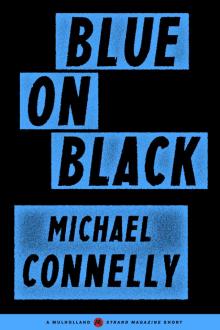 Blue on Black
Blue on Black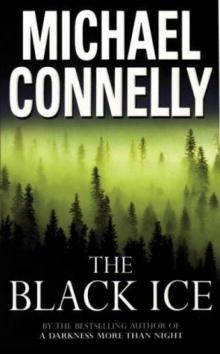 The Black Ice (1993)
The Black Ice (1993) Crime Beat: A Decade of Covering Cops and Killers
Crime Beat: A Decade of Covering Cops and Killers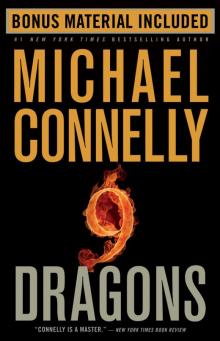 Nine Dragons
Nine Dragons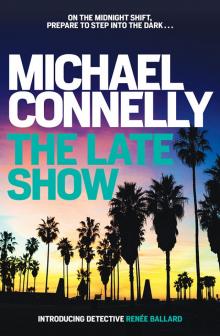 The Late Show
The Late Show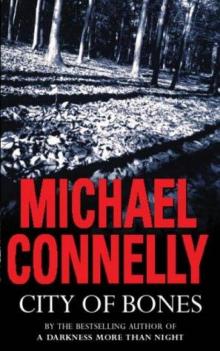 City of Bones
City of Bones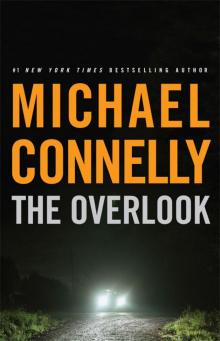 The Overlook
The Overlook The Crossing
The Crossing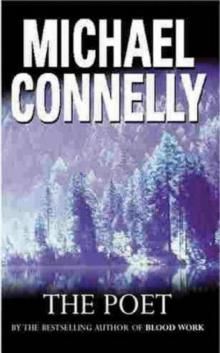 The Poet (1995)
The Poet (1995)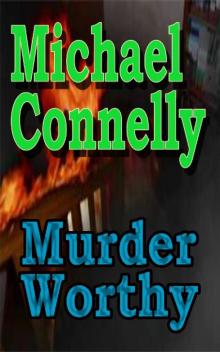 Murder Worthy
Murder Worthy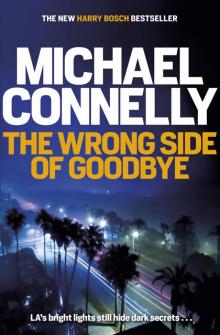 The Wrong Side of Goodbye
The Wrong Side of Goodbye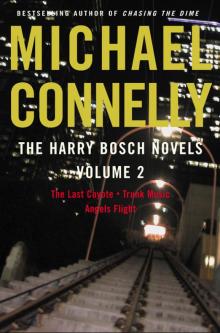 Harry Bosch Novels, The: Volume 2
Harry Bosch Novels, The: Volume 2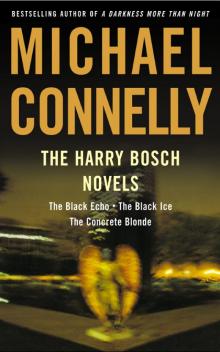 The Harry Bosch Novels
The Harry Bosch Novels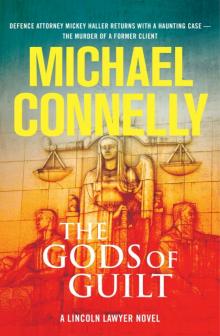 The Gods of Guilt
The Gods of Guilt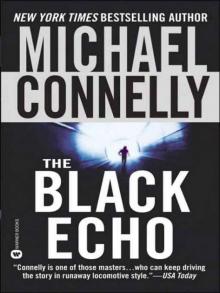 The Black Echo
The Black Echo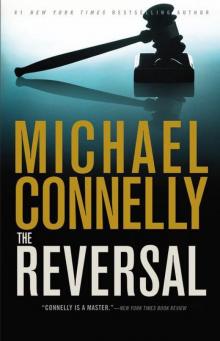 The Reversal
The Reversal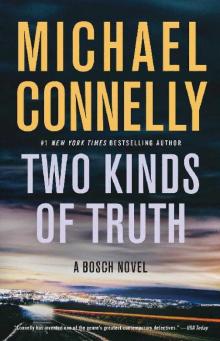 Two Kinds of Truth
Two Kinds of Truth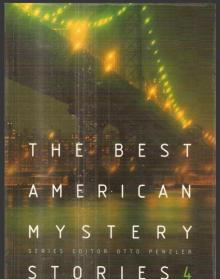 The Best American Mystery Stories 2003
The Best American Mystery Stories 2003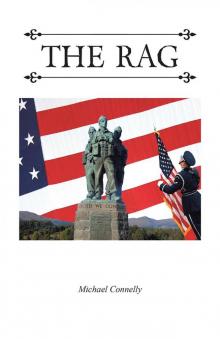 The Rag
The Rag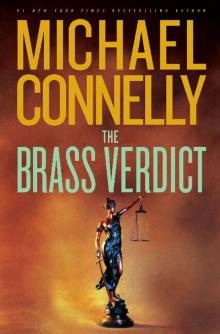 The Brass Verdict
The Brass Verdict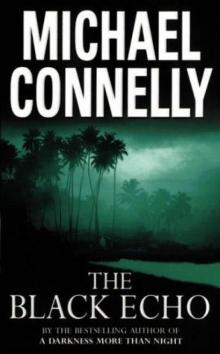 The Black Echo (1992)
The Black Echo (1992)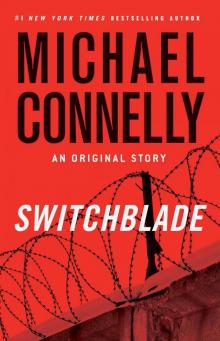 Switchblade
Switchblade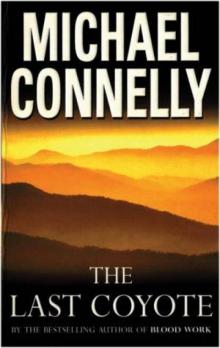 The Last Coyote
The Last Coyote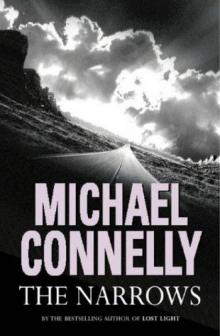 The Narrows
The Narrows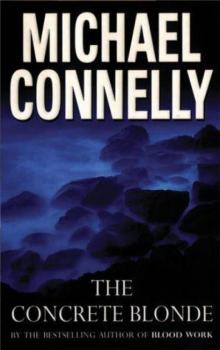 The Concrete Blonde (1994)
The Concrete Blonde (1994)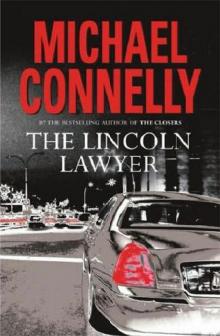 THE LINCOLN LAWYER (2005)
THE LINCOLN LAWYER (2005)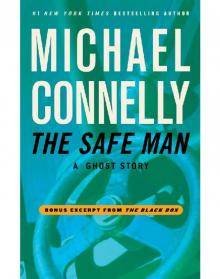 The Safe Man: A Ghost Story
The Safe Man: A Ghost Story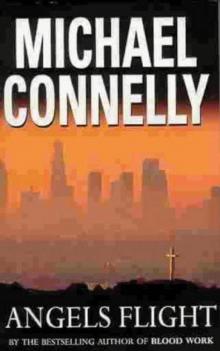 Angels Flight (1998)
Angels Flight (1998) Void Moon
Void Moon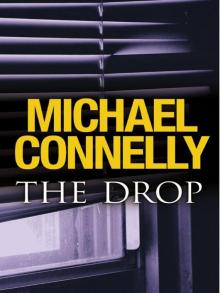 The Drop
The Drop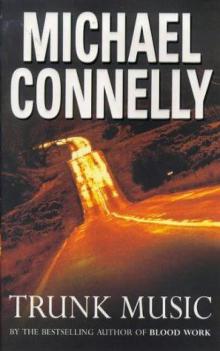 Trunk Music
Trunk Music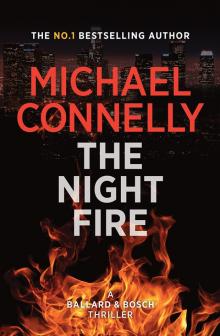 The Night Fire
The Night Fire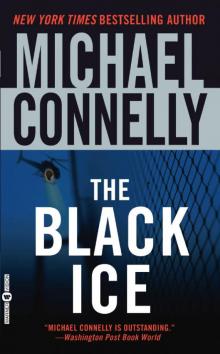 The Black Ice
The Black Ice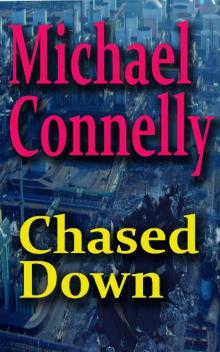 Chased Down
Chased Down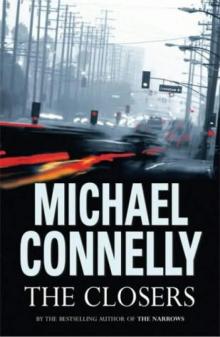 The Closers
The Closers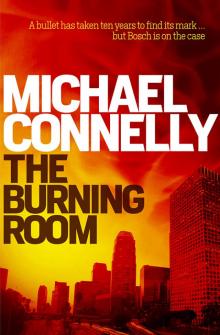 The Burning Room
The Burning Room Angels Flight
Angels Flight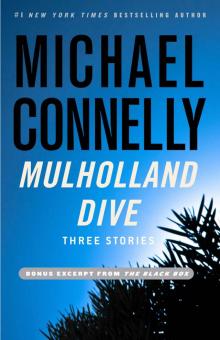 SSC (2012) Mulholland Drive
SSC (2012) Mulholland Drive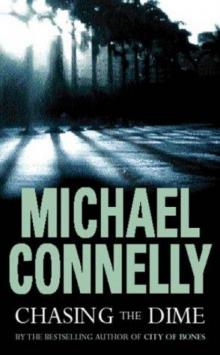 Chasing the Dime
Chasing the Dime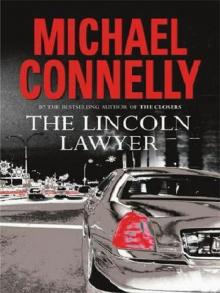 The Lincoln Lawyer
The Lincoln Lawyer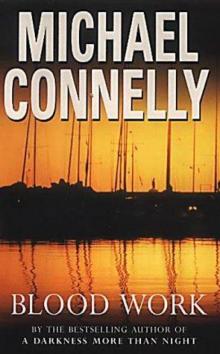 Blood Work (1998)
Blood Work (1998)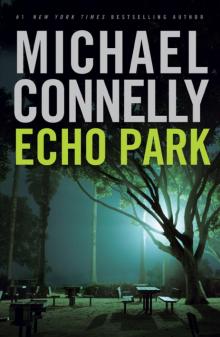 Echo Park
Echo Park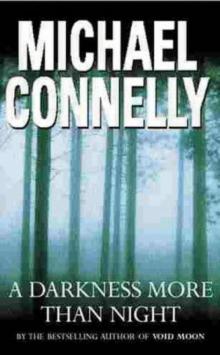 A Darkness More Than Night
A Darkness More Than Night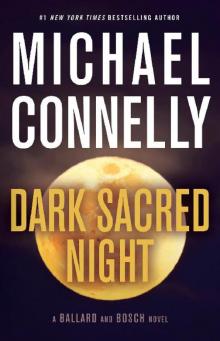 Dark Sacred Night - Ballard and Bosch #1;Renée Ballard #2
Dark Sacred Night - Ballard and Bosch #1;Renée Ballard #2 Lost Light
Lost Light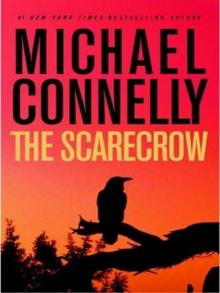 The Scarecrow
The Scarecrow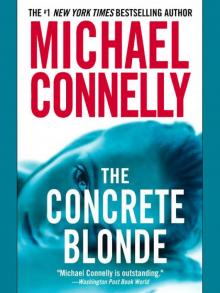 The Concrete Blonde
The Concrete Blonde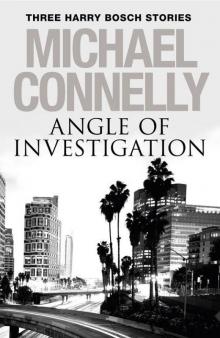 Angle of Investigation
Angle of Investigation Suicide Run: Three Harry Bosch Stories
Suicide Run: Three Harry Bosch Stories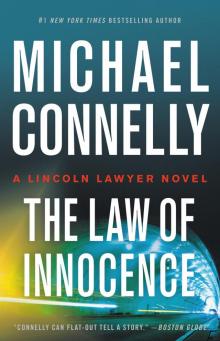 The Law of Innocence
The Law of Innocence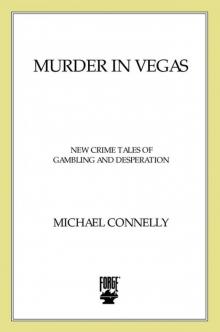 Murder in Vegas: New Crime Tales of Gambling and Desperation
Murder in Vegas: New Crime Tales of Gambling and Desperation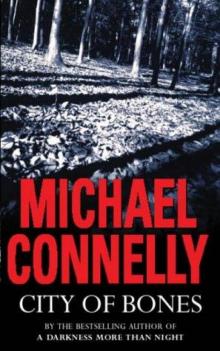 City Of Bones (2002)
City Of Bones (2002)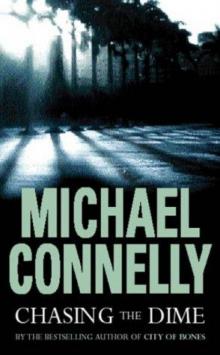 Chasing the Dime (2002)
Chasing the Dime (2002)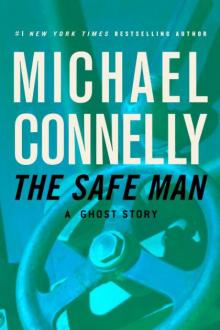 The Safe Man
The Safe Man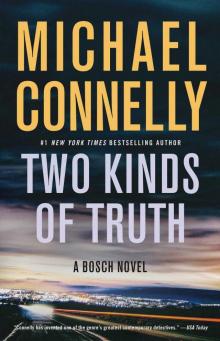 Two Kinds of Truth (A Harry Bosch Novel)
Two Kinds of Truth (A Harry Bosch Novel)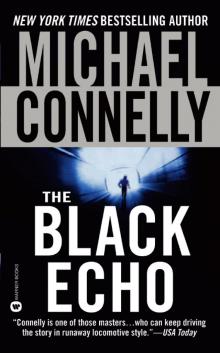 Harry Bosch 01 - The Black Echo
Harry Bosch 01 - The Black Echo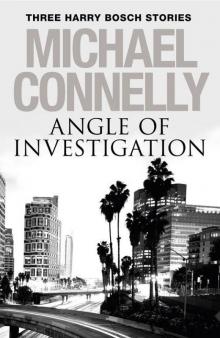 Angle of Investigation: Three Harry Bosch Short Stories
Angle of Investigation: Three Harry Bosch Short Stories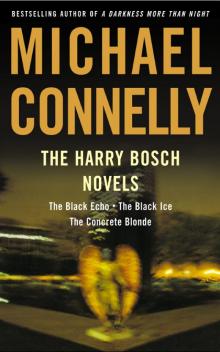 The Harry Bosch Novels Box Set 1
The Harry Bosch Novels Box Set 1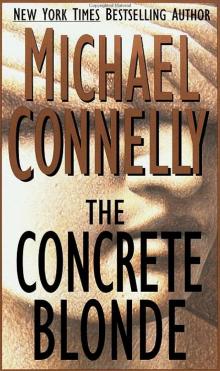 The Concrete Blonde hb-3
The Concrete Blonde hb-3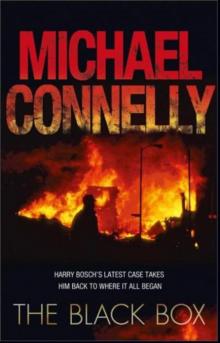 The Black Box hb-18
The Black Box hb-18 Short Stories
Short Stories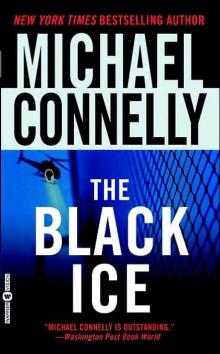 The Black Ice hb-2
The Black Ice hb-2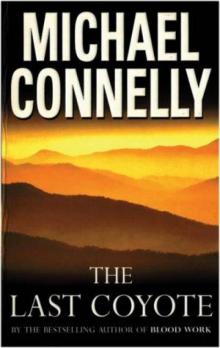 The Last Coyote (1995)
The Last Coyote (1995)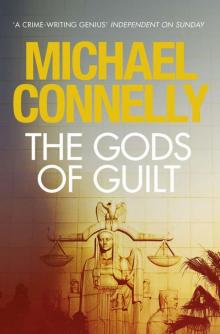 The Gods of Guilt mh-5
The Gods of Guilt mh-5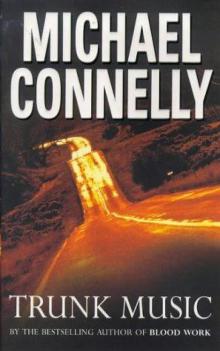 Trunk Music (1996)
Trunk Music (1996)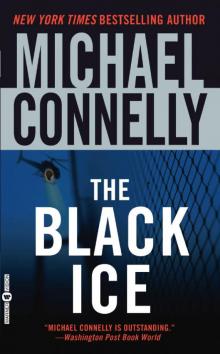 Harry Bosch 02 - The Black Ice
Harry Bosch 02 - The Black Ice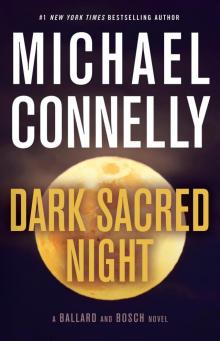 Dark Sacred Night
Dark Sacred Night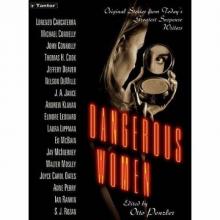 Cielo Azul
Cielo Azul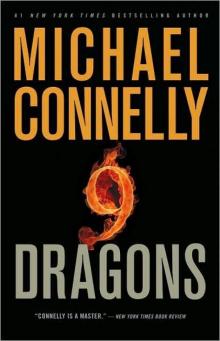 9 Dragons
9 Dragons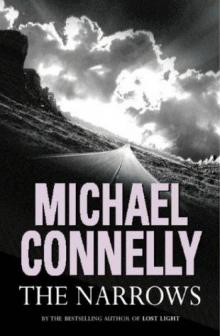 The Narrows (2004)
The Narrows (2004)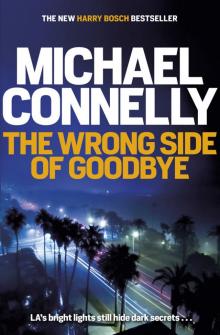 The Wrong Side of Goodbye (Harry Bosch Series)
The Wrong Side of Goodbye (Harry Bosch Series)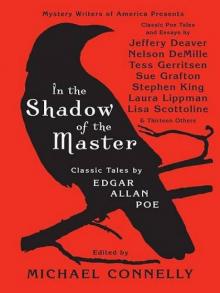 In The Shadow Of The Master: Classic Tales by Edgar Allan Poe
In The Shadow Of The Master: Classic Tales by Edgar Allan Poe Void Moon (1999)
Void Moon (1999)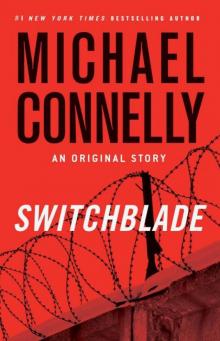 Switchblade: An Original Story (harry bosch)
Switchblade: An Original Story (harry bosch)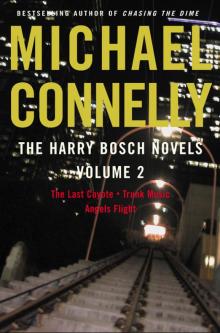 The Harry Bosch Novels, Volume 2
The Harry Bosch Novels, Volume 2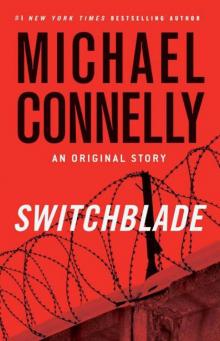 Switchblade: An Original Story
Switchblade: An Original Story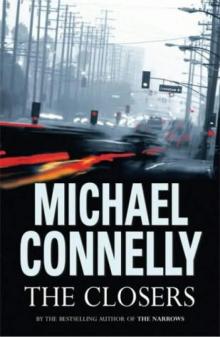 The Closers (2005)
The Closers (2005) Crime Beat
Crime Beat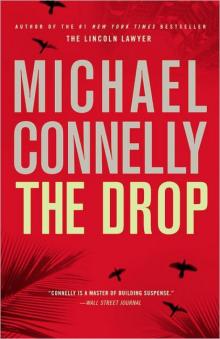 The Drop hb-17
The Drop hb-17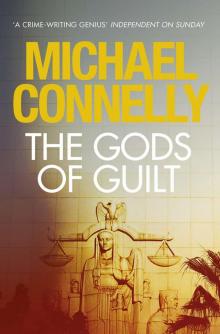 The Gods of Guilt (Mickey Haller 5)
The Gods of Guilt (Mickey Haller 5)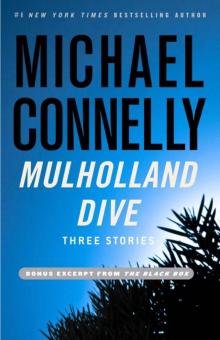 Mulholland Dive: Three Stories
Mulholland Dive: Three Stories Lost Light (2003)
Lost Light (2003)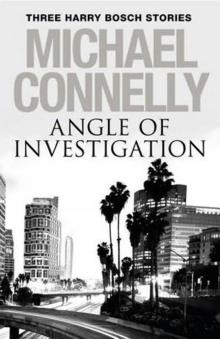 Angle of Investigation: Three Harry Bosch Stories
Angle of Investigation: Three Harry Bosch Stories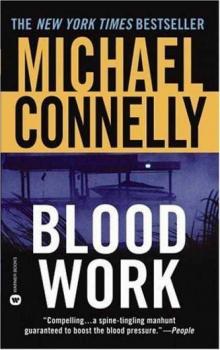 Blood Work
Blood Work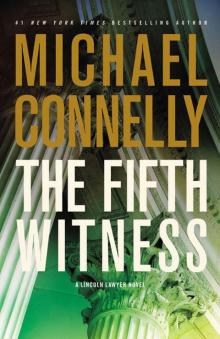 The Fifth Witness: A Novel
The Fifth Witness: A Novel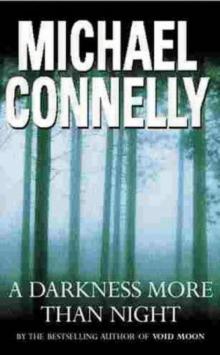 A Darkness More Than Night (2000)
A Darkness More Than Night (2000)